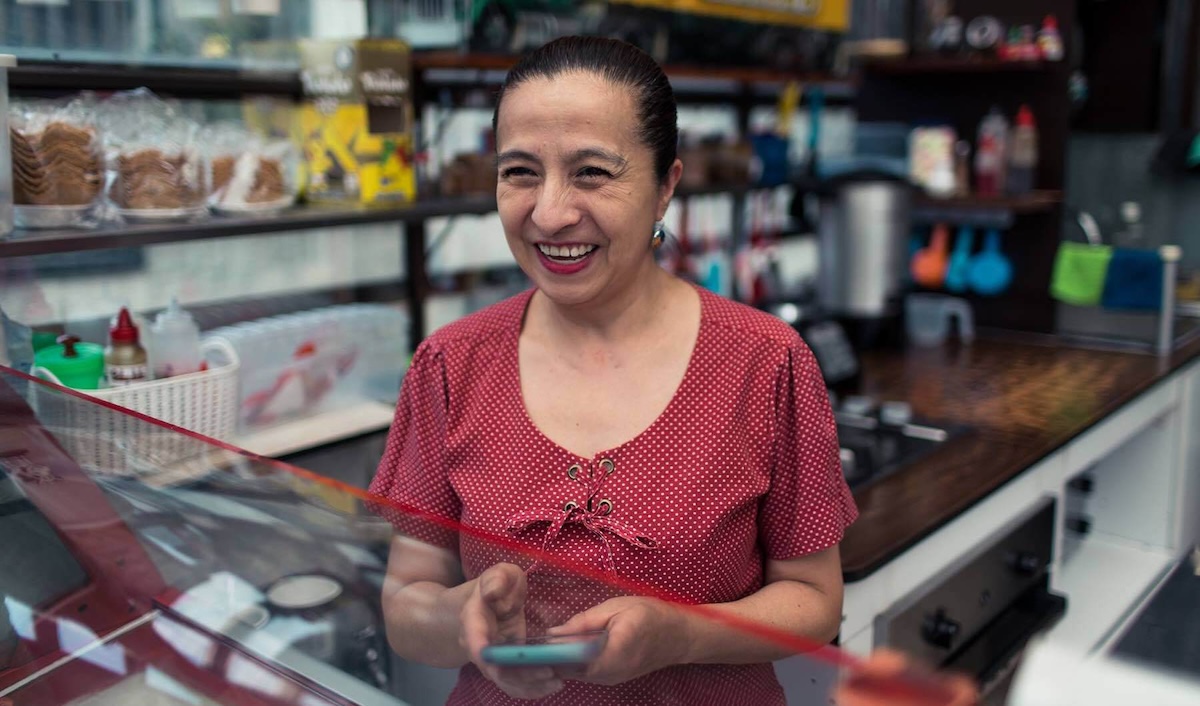Greetings Agents of Impact!
In today’s Brief:
- Tonya Allen: Countering the attacks on DEI
- TPG Rise Climate acquires renewables storage provider
- Agtech bankruptcy in Kenya
- ESG lens for green mineral mining
Featured: Returns on Inclusion
McKnight Foundation’s Tonya Allen: Philanthropy has the right and responsibility to counter attacks on DEI (Q&A). Tonya Allen won’t take the bait. The president of Minnesota-based McKnight Foundation isn’t retreating in the face of right-wing attacks on diversity, equity and inclusion, or DEI. Instead, Allen is putting the heft of the $2.6 billion family foundation behind strategies that redress the historic and systematic economic exclusion of people by race. “As a private institution, we have the right to express our mission as long as we are not discriminating against anyone, and we are not,” says Allen, who took McKnight’s helm in 2021. To redress policies that have led to persistent wealth gaps, McKnight has helped mobilize the Groundbreak Coalition and $1 billion in flexible capital for Black homeowners, entrepreneurs and commercial developers.
- Reversing retreat. Since last year’s US Supreme Court decision banning affirmative action in college admissions, conservative-led groups have brought lawsuits against DEI efforts at corporations, in the military and at investment firms, including Atlanta-based Fearless Fund. The perceived risk has pushed many foundations to backslide on racial-justice efforts, censor their language and narrow the scope of their programs. “The field of philanthropy, in my opinion, has allowed a case that has not been precedent-setting for our field to drive actions and drive our behaviors,” Allen told ImpactAlpha ahead of this week’s Mission Investors Exchange confab of philanthropic asset owners. Absent such a precedent, she says, “We will not change our work.”
- Investing in equity. Under Allen, the foundation has aligned almost half of its endowment with its climate and equity mission, through investments in funds like Generation Investment Management’s Global Equity fund and Ownership Capital. Almost $600 million is allocated to more proactive impact investments, in firms like the solar provider Posigen and funds such as Inclusive Prosperity Capital, Afterglow Climate Justice Fund, Apis & Heritage and Chicago TREND. She acknowledges the foundation has more work to do to diversify its managers; McKnight has increased the percentage of its assets managed by diverse-owned firms to 9%, up from 7.6% in 2022. Diversity “is an arbitrage strategy,” says Allen. “There are a set of assets that are undervalued by the market, and we want to make sure that we invest in those assets and in those people and in those managers and benefit from them.”
- Redressing exclusion. Philanthropy can get ahead of the DEI attacks by focusing on redressing universal problems, like access to homeownership, that groups of people experience differently, says Allen. In Minnesota, for example, more than 70% of the white population are homeowners, compared to 25% of the state’s Black residents. Part of the case for the Groundbreak Coalition is to redress historic government policies that prohibited the sale of homes to Black buyers. “What’s the greater risk?” asks Allen, that foundations may face “a lawsuit related to something that we actually have all the right to do?” Or “that people who have systematically been cut out of our economy will not have had the full opportunities to participate in prosperity in this country?”
- Keep reading, “McKnight Foundation’s Tonya Allen: Philanthropy has the right and responsibility to counter attacks on DEI (Q&A),” by Dennis Price on ImpactAlpha.
Dealflow: Sustainable Fuels
TPG Rise Climate acquires renewable fuels storage and delivery company Olympus Terminals. California-based Olympus (formerly Chemoil), transports and stores renewable fuels, such as renewable diesel. The fuel, made from fats and oils, such as soybean or canola oil, is processed to have the same chemical composition as petroleum diesel used by heavy-duty vehicles, but it burns more completely and is therefore cleaner. California, which has passed regulations such as the low-carbon fuel standard, has been the largest consumer of renewable diesel since 2018, averaging 81% of total use in the US. By acquiring the company, TPG hopes to help Olympus play a role in the state’s renewable diesel value chain. “Olympus’ assets and operations are central to the sustainable fuels ecosystem,” said TPG’s Jonathan Garfinkel.
- Terminals portfolio. Olympus owns and manages two fuel terminals in Long Beach. Its five-acre Long Beach Marine Terminal has nine storage tanks with a total capacity of 520,000 barrels; its 15-acre Carson Terminal has 22 tanks with a storage capacity of nearly 1.3 million barrels. Prior to the sale, Olympus was majority-owned by funds managed by Davidson Kempner Capital Management and Intrepid Investment Management.
- Share this post.
Kenya’s iProcure, used by a million farmers, may be the next African funding crunch casualty. The agtech startup iProcure launched a decade ago to untangle supply-chain logistics for Africa’s hundreds of millions of smallholder farmers. Now the company is bankrupt. Investors including I&P, British International Investment, Novastar Ventures and family office Ceniarth poured a collective $17.1 million into the Nairobi-based startup, including $10.2 million in debt and equity in August 2022. iProcure provided seeds, feed and fertilizer, streamlined distribution and last-mile deliveries, and offered market data. “We are deeply sorry to see this pioneer in African agritech fail after successfully disrupting the agricultural inputs distribution sector in Kenya and Uganda,” Novastar said in a statement. iProcure had digitized and served more than a million farmers. “iProcure’s failure is a painful reminder that even the most promising companies operating in our region are vulnerable to macroeconomic headwinds and extremely challenging funding and operating environments,” said Novastar.
- Funding drought. iProcure’s board placed it under administration in late April after the startup failed to close a new funding round. Accounting firm KPMG will wind down the startup’s operations. Financial and macroeconomic headwinds are buffeting young companies across the continent. At least 10 Kenya-based ventures, including online retail merchant Sendy, online farmer forum WeFarm, and Notify Logistics, which rented retail shelf space to small enterprises, have shut down since 2021 (see, “Trouble at Twiga… and Copia… and Sendy: downturn hits East African logistics disruptors”). Funding for African agri-tech startups fell 36% last year, to $84.6 million.
- Market headwinds. For iProcure, “we know that the company faced various headwinds in its growth including the introduction of significant Kenyan government subsidies on fertilizer,” Ceniarth’s Greg Neichin told ImpactAlpha. Ceniarth’s loan to iProcure was repaid last year. Despite market challenges, “there remains a vibrant sector of private, nonprofit, and hybrid agri-enterprises all continuing to find ways to support farmers in Africa,” Neichin said.
- More.
Zanskar snags $30 million for AI-based geothermal energy exploration. Geothermal energy, which taps into the Earth’s heat, is gaining adoption across the globe. Salt Lake City-based Zanskar Geothermal and Minerals uses artificial intelligence to speed the process of siting and producing thermal energy for industrial and residential use. Its $30 million funding round was led by Obvious Ventures. Existing investors Munich Re Ventures, Union Square Ventures, Lowercarbon Capital, Safar Partners and First Star Ventures also participated. More.
Dealflow overflow. Investment news crossing our desks:
- Mumbai-based Infinity Fincorp Solutions secured $26 million in a round led by Jungle Ventures to expand access to “easy credit” to electricians, plumbers, hairdressers and other freelancers and microenterprises in India. (Entrepreneur India)
- Acclinate raised $7 million in Series A funding, backed by Baltimore-based Latimer Ventures, to work with pharmaceutical companies to conduct more diverse clinical trials to drive health equity. (Acclinate)
- Alitheia IDF, the $100 million African gender-lens fund of Alitheia Capital and IDF Capital, invested $4.5 million in Nigeria’s Seamfix, which provides digital identity verification to governments, financial institutions and other partners. (Africa Private Equity News)
Impact Voices: Deploy!
ESG will be key to supplying ‘green’ metals needed for the energy transition. A single wind turbine requires 4.7 tons of copper, while EV batteries use copious amounts of lithium, nickel and cobalt. Procurement of these critical metals will need to increase seven-fold by 2030, setting off a global scramble to secure supplies. In addition to long development times, high capital intensity and price volatility, the mining industry’s poor track record on safety, human rights and pollution threatens to dampen investment, says Levi Zurbrugg of investment advisor Saturna Capital. “To ensure a future that is both sustainable and equitable, meticulous environmental, social and governance oversight and innovative sourcing are key,” he writes in a guest post on ImpactAlpha.
- More sustainable mining. Regions with poor governance dominate the production of energy transition materials. Half of such production in 2040 is expected to occur in autocracies. More than a third of mining for critical minerals are on, or near, Indigenous territory or farmland at risk of conflict and water and food insecurity. Promising are tech advancements such as recycling, new methods and materials that eliminate the need for scarce minerals, and more sustainable production methods like direct lithium extraction. The Global Investor Commission on Mining 2030, an investor-led initiative launched last year, is pushing for more socially and environmentally responsible mining.
- De-risking rare minerals. White House advisor Amos Hochstein this week urged the US International Development Finance Corp., World Bank and IMF to catalyze investment in mining projects in risky regions that investors and corporations have shunned. “We can all live in the capitals and cities around the world and say ‘I don’t want to do business there.’ But what you are really saying is, ‘We’re not going to have an energy transition,’” he said at the Milken Institute Global Conference in Beverly Hills.
- Read the whole post.
Agents of Impact: Follow the Talent
Amy Bell, previously with The Cook’s Nook and Whole Foods, joins MCE Social Capital as chief financial officer… Alex McCarthy (who will join DBL Partners), Christiana Lee (who will join Spring Lane Capital) and Aakash Kotak (who will join Builders Fund) are among 25 graduate student Mosaic Fellows selected by Impact Capital Managers… In an open letter, George Clooney, Regina King, Ava Duvernay and other actors, filmmakers and activists called on Hollywood studios to produce more stories and projects that prioritize social impact following the closure of Participant (for context, see “Shutdown of Participant challenges other investors to drive impact through film”).
Convergence seeks an Asia-Pacific manager in Singapore… Hill & Knowlton is recruiting a freelance ESG specialist and report writer in New York… Savia Ventures seeks ambassadors, advisors and collaborators for the Lotus Award for the best Latina founder in climate. Join the kick-off webinar today at 5pm ET… Sustainable Finance Initiative will convene over 120 Asia-based impact investing family offices and wealth owners at the SFi Asian Family Impact Summit on Wednesday, May 22 in Hong Kong.
👉 View (or post) impact investing jobs on ImpactAlpha’s Career Hub.
Thank you for your impact!
– May 8, 2024











